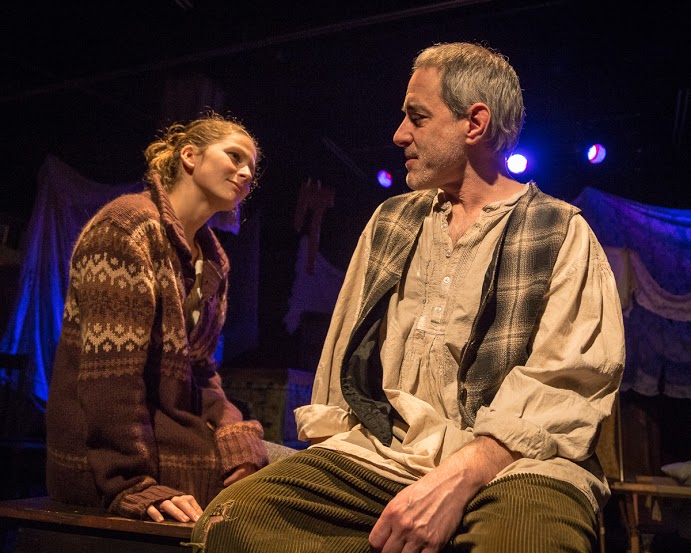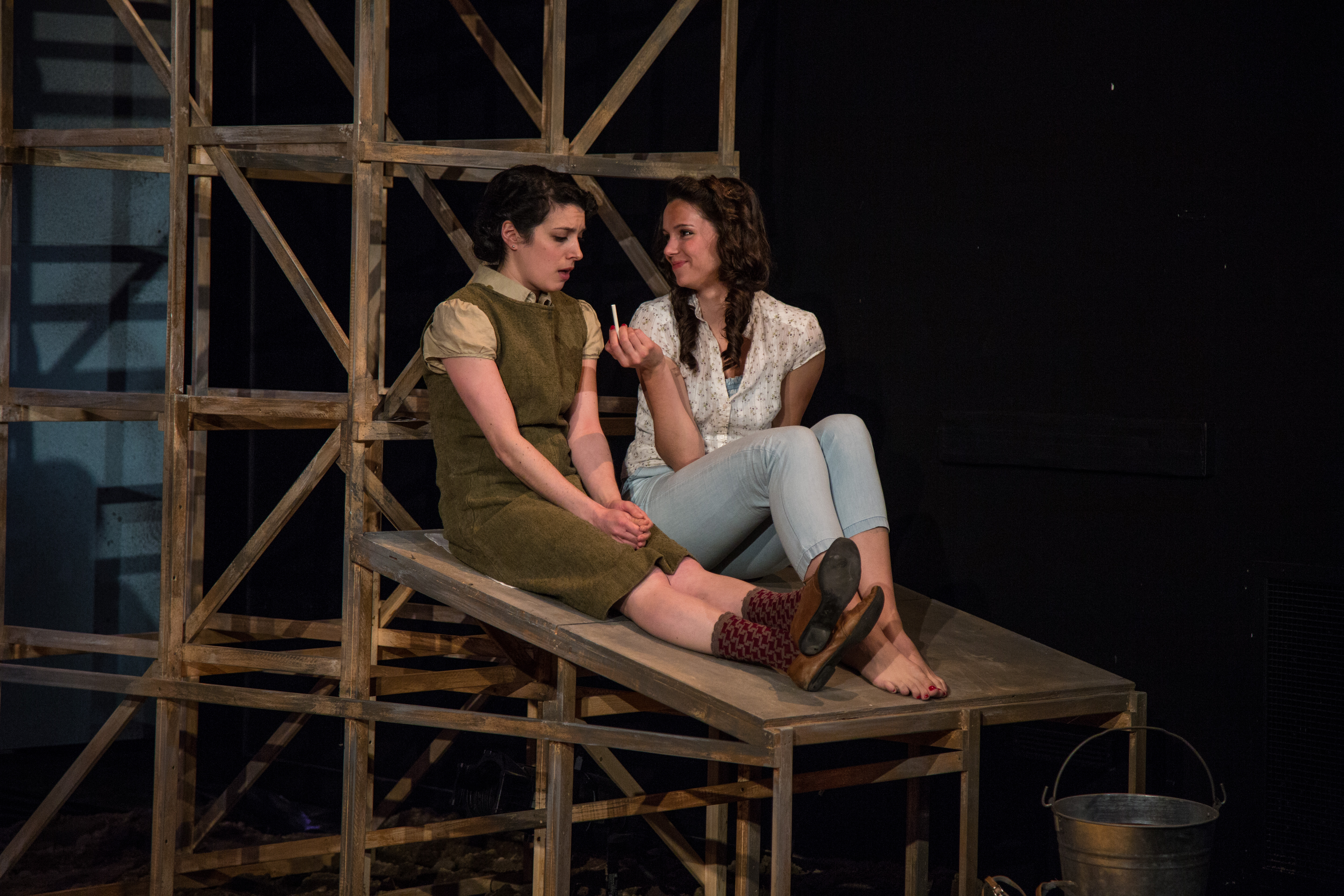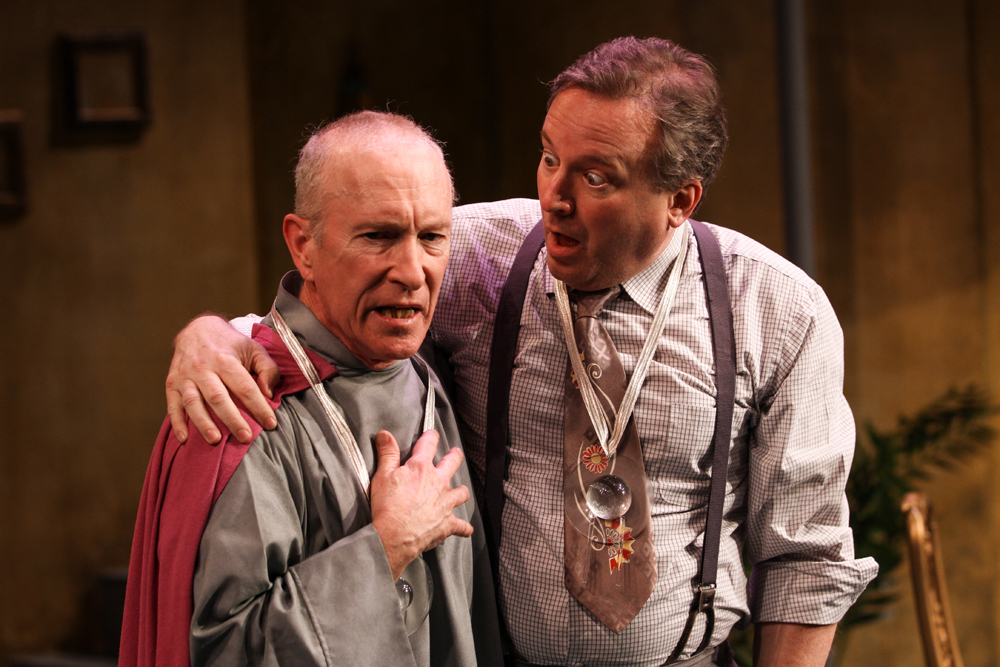In 1890, muckraking photographer Jacob Riis’ How the Other Half Lives documented the squalid tenements of New York City. His middle-class readers had never seen such poverty and were forced to confront it; the book’s title became shorthand for progressivism and social reform. A dozen years later in imperial Russia, Maxim Gorky’s The Lower Depths had much the same effect.
In Theatre Machine’s revival, we’re thrust into a poor house, run by cruel, conniving Wassalissa (the formidable Alissa Cattabriga), where residents waste away their lives drinking and bickering. The din is disturbing as denizens talk over one another; slips and panties hang in the foreground, cots line the ground, and cheap booze flows. Whose turn is it to sweep? The fallen baron (Phillip Keiman) has an aversion to manual labor that bounces the responsibility from one to the next. As the bookish prostitute (Sharon Barto), the cirrhosis-stricken actor (Mark Waldstein), and the pragmatist of the group (Cole Hornaday) argue over whose turn it is to clean, Natasha (Brittany Cox), Wassalissa’s daydreaming, wide-eyed sister, introduces the newest boarder.
Compassionate interloper Luka (Bill Badgley) is both a godsend and a curse to this group. His rhetoric is incendiary, giving these derelicts hope. But who is he? While the boarders are more caricatures than individuals, Luka is purely a plot device. He’s in, then he’s out, leaving the residents to only briefly contemplate self-improvement—or even revolution.
At a time when Oxfam is predicting that one percent of Earth’s population will soon control 50 percent of global wealth, director Melissa Fenwick’s adaptation is surely topical, but with a twist: This show is a musical. Ryan Ricks and a band provide live melodic/melodramatic accompaniment: tunes by Tom Waits, Neil Young, and even a beautifully tragic rendition of The Verve Pipe’s “The Freshmen” (sung by Badgley). Call it a gimmick, but the soundtrack at least partially offsets our frustration with typical characters who never pull themselves up by their bootstraps and get out of their rut. All we see are slivers of compassion and humanity—not a class uprising.
Briefly associated with Lenin, Alexei Maximovich Peshkov adopted the pen name of Gorky (or “bitter”). If Riis’ photojournalism evoked pure pity, Gorky’s writing blurred the line between pity and disgust. Here his unvarnished gutter-dwellers create an aversion to a predicament in which we bourgeois theatergoers are complicit. The new songs lend romance, though they fail to update this pre-revolutionary stage relic to the age of Thomas Piketty.
stage@seattleweekly.com
THE LOWER DEPTHS theLAB@INScape, 815 Seattle Blvd. S., 800-838-3006, brownpapertickets.com. $12–$18. 8 p.m. Thurs.–Sat. plus Mon., Jan. 26. Ends Jan. 31.








